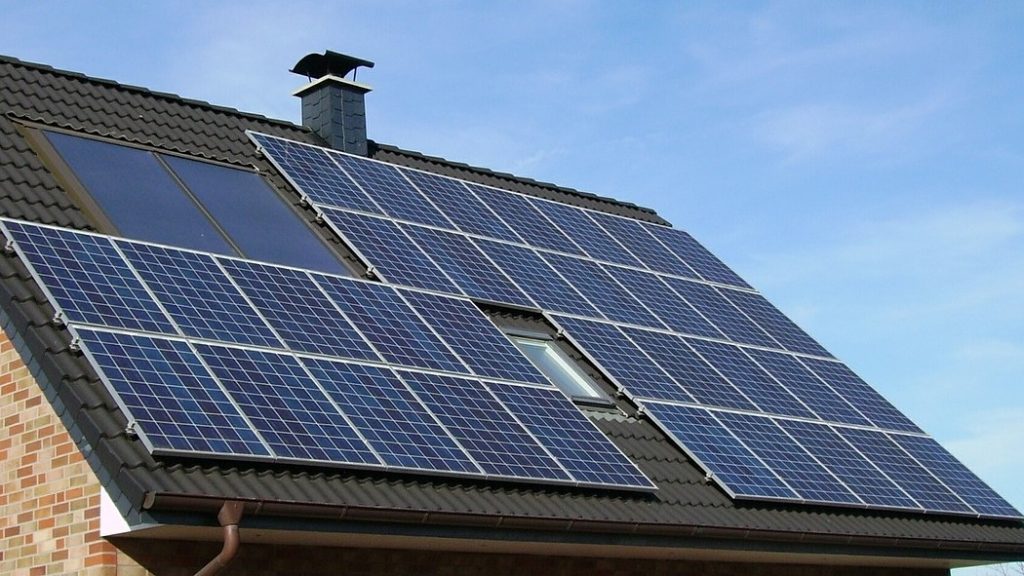Rooftop solar key to winning support for energy transition

March 5th, 2019
Rooftop solar may not be the panacea to hitting our energy targets but could be the “magic bullet” to win citizen engagement in the energy transition, an Oireachtas Committee heard today.
Speaking at a hearing on the Microgeneration Support Scheme Bill today, Paul Kenny of the Tipperary Energy Agency said that paying people for energy produced through rooftop solar is a great opportunity to engage disconnected citizens in the energy transition.
The Private Members Bill (PMB) sponsored by Sinn Fein’s Brian Stanley seeks to ensure that electricity companies pay small scale generators for excess power generated that is sent back to the grid.
According to a new analysis from the Sustainable Energy Authority of Ireland (SEAI) Ireland will not meet its 2020 renewable energy targets despite hitting new records for renewables on the electricity grid in 2017.
Ireland is still lagging behind our European counterparts, ranked 26 out of the 28 EU countries for progress towards the bloc’s mandated 2020 renewables targets, the energy authority found.
While microgeneration alone won’t put us on track to hit our target, Mr Kenny said we could produce 10 to 12 per cent of our electricity needs if every household had just two rooftop solar panels.
A recent report from the European think tank CE Delft found that almost half of EU citizens could be producing almost half of the EU’s energy by mid-century.
Mr Kenny said that it is time for Ireland to catch up with other European countries such as the UK and Germany who hit records for solar energy use last year as “we hit records for gas use”.
He said that there are several policy restrictions in place to allow us to do so including excessive charges for export meters and restricted planning permission for rooftop solar.
He praised the “generous” grant for the purchase of solar panels for domestic buildings launched last year, calling on the Government to couple this grant with a payment for excess energy produced.
“We should put citizens first, encourage active prosumers and use the roof as an encouragement to unlock the energy transition,” he said.
“Solar is not our magic energy bullet. It will only do a fraction of our total energy use, however it may be the magic bullet of citizen and societal engagement in the energy transition that the state has heretofore missed.”

Community support
A network of over 200 sustainable energy communities supported by the SEAI are currently working around the country to developing plans to decarbonise their communities.
While excelling in some areas, these groups are constrained in terms of renewable energy generation due to current policies, according to Kate Ruddock of Friends of the Earth Ireland (FOE).
“The rules work against them,” Ms Ruddock told the Committee, citing a lack of financial incentive to sell energy back to the grid, and strict rules around grid connection and planning permission for rooftop solar.
Currently energy subsidies are paid to professional developers, large utilities and semi-state organisations under the Public Service Obligation levy charged on all consumers’ bills.
Ms Ruddock said that FOE “sees no logic” in only subsidising professional developer and not rooftop or community generators who, she said, “should be able to benefit the same as the big guys”.
The forthcoming renewable electricity support scheme (RESS) that will include a separate subsidy for larger community-led renewable projects is a good first step but still does not create a fair system, Ms Ruddock said.
The EU recently granted new rights to consumers to produce, store, consume and sell renewable energy, meaning that “it is only a matter of time” before Irish citizens join the renewables revolution, Ms Ruddock said.
“The only choice Ireland has now is whether to be dragged into this at a later date by Europe, or to welcome it and do it ourselves now and in doing so build the democratic, fair and renewable energy system we need,” she added.
Prior to the hearing, the Committee’s chair Hildegarde Naughten accepted a FOE petition asking the Government to support a fair payment for solar power that now has almost 21,000 signatures – including Leo Varadkar.
[x_author title=”About the Author”]







